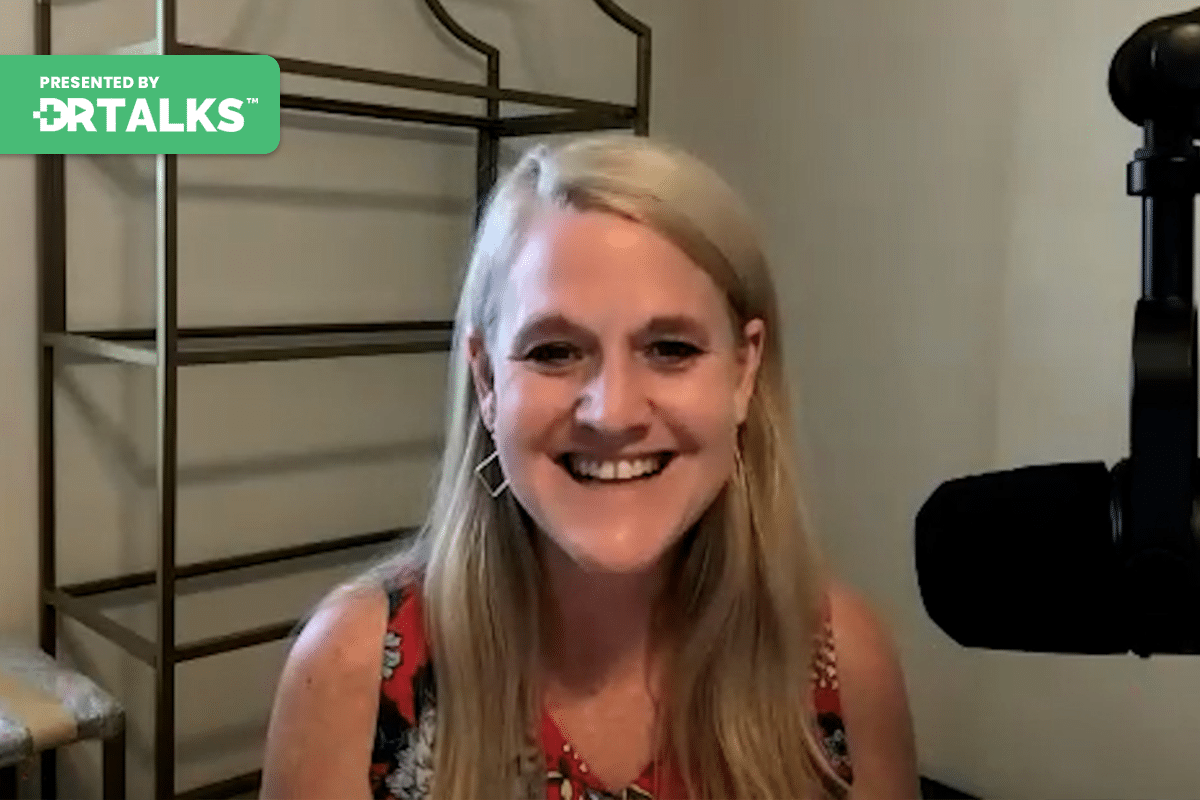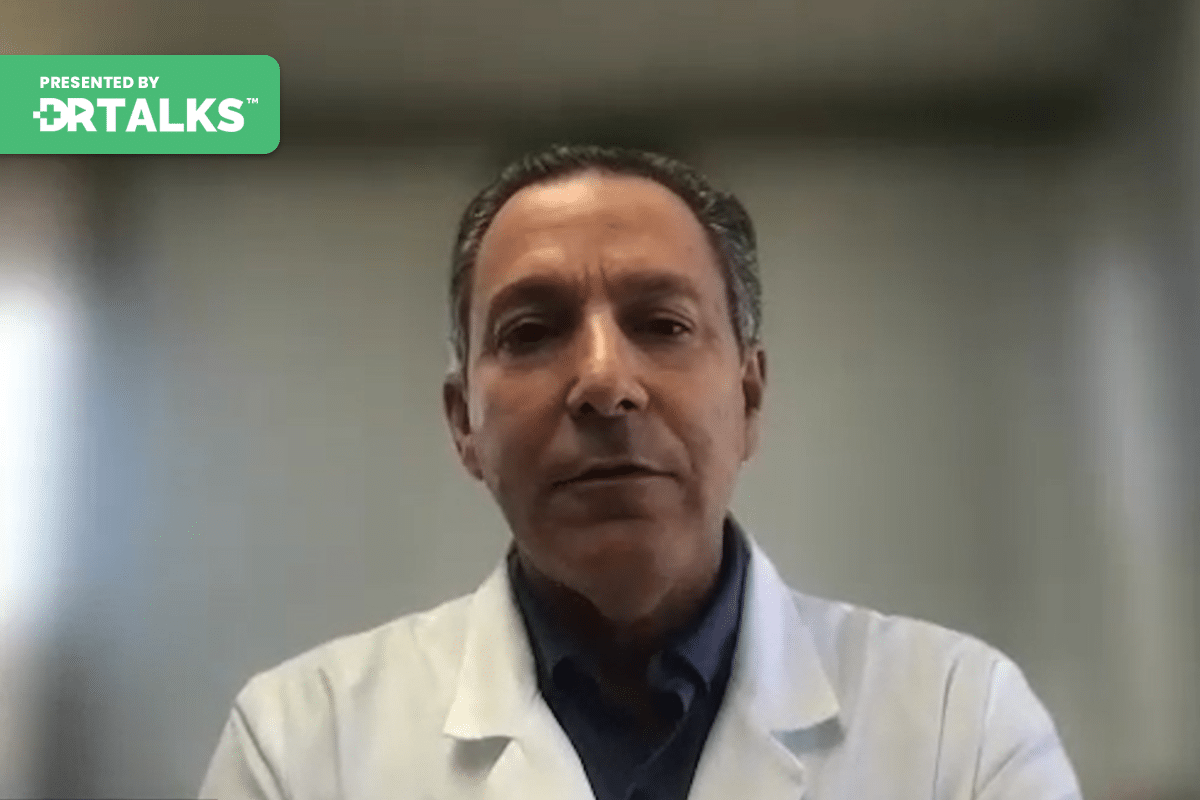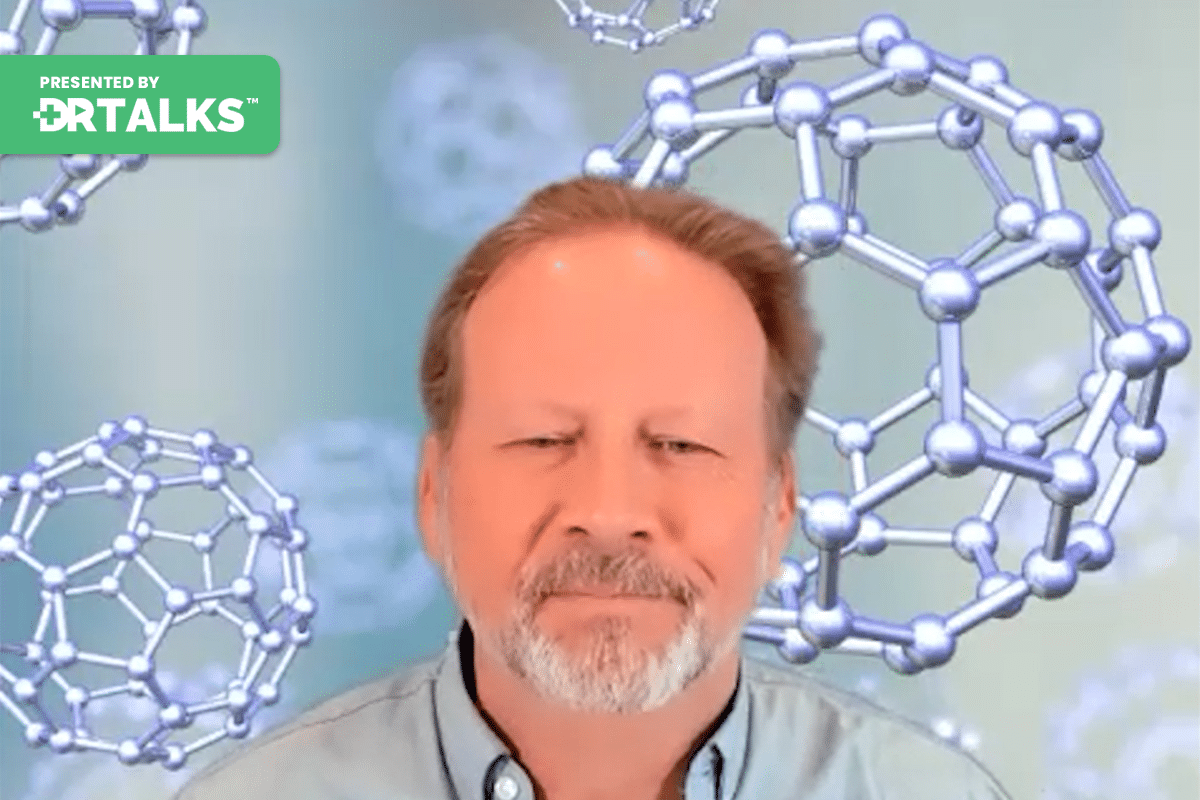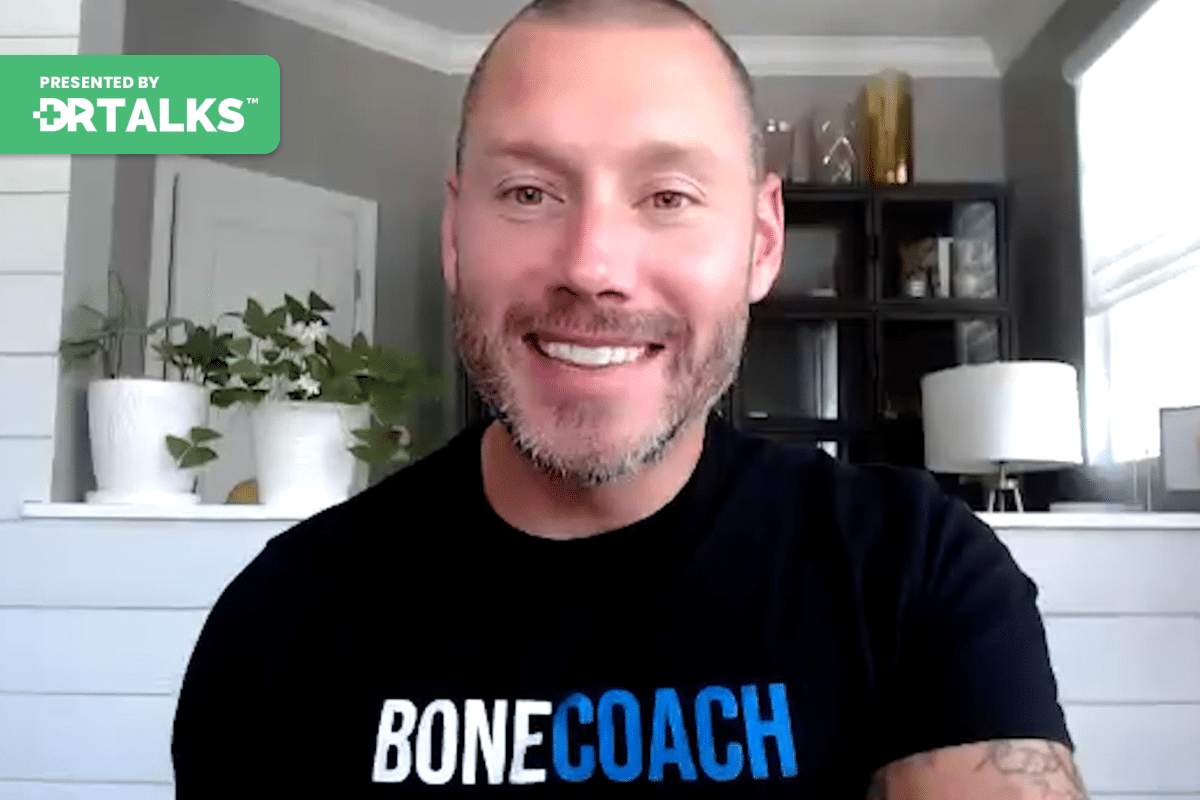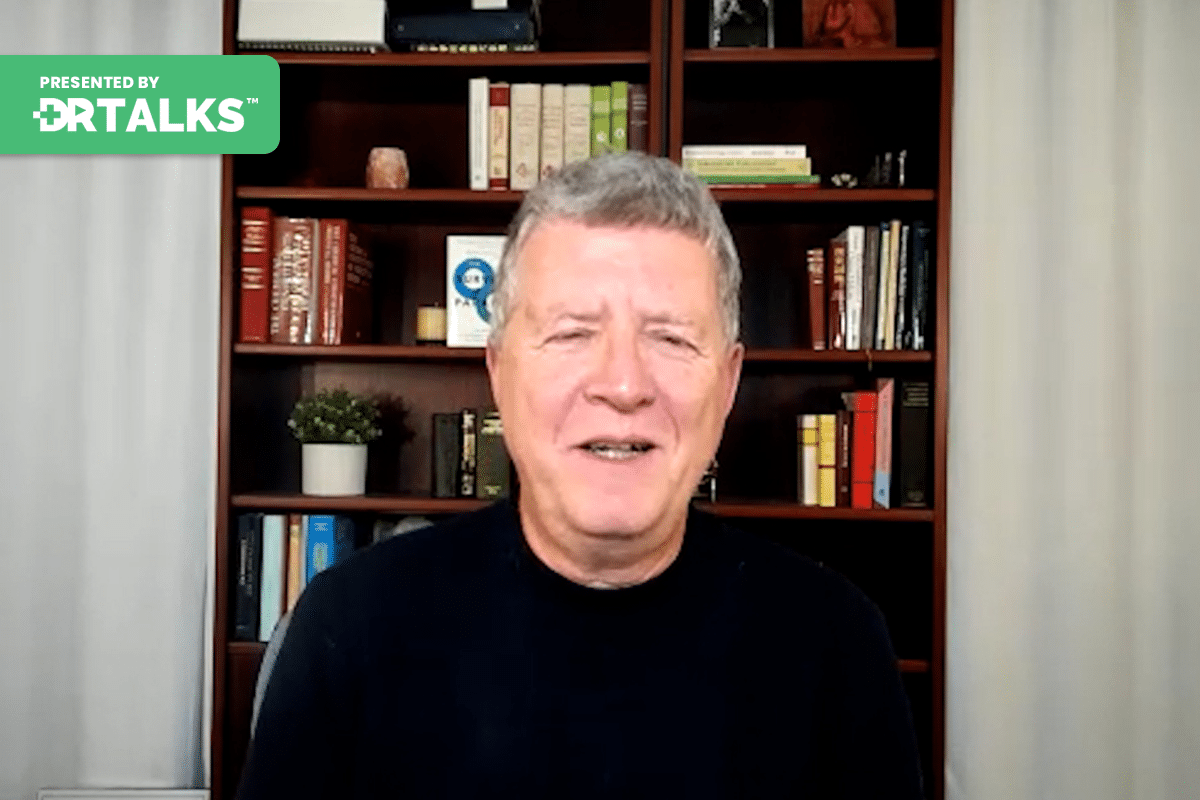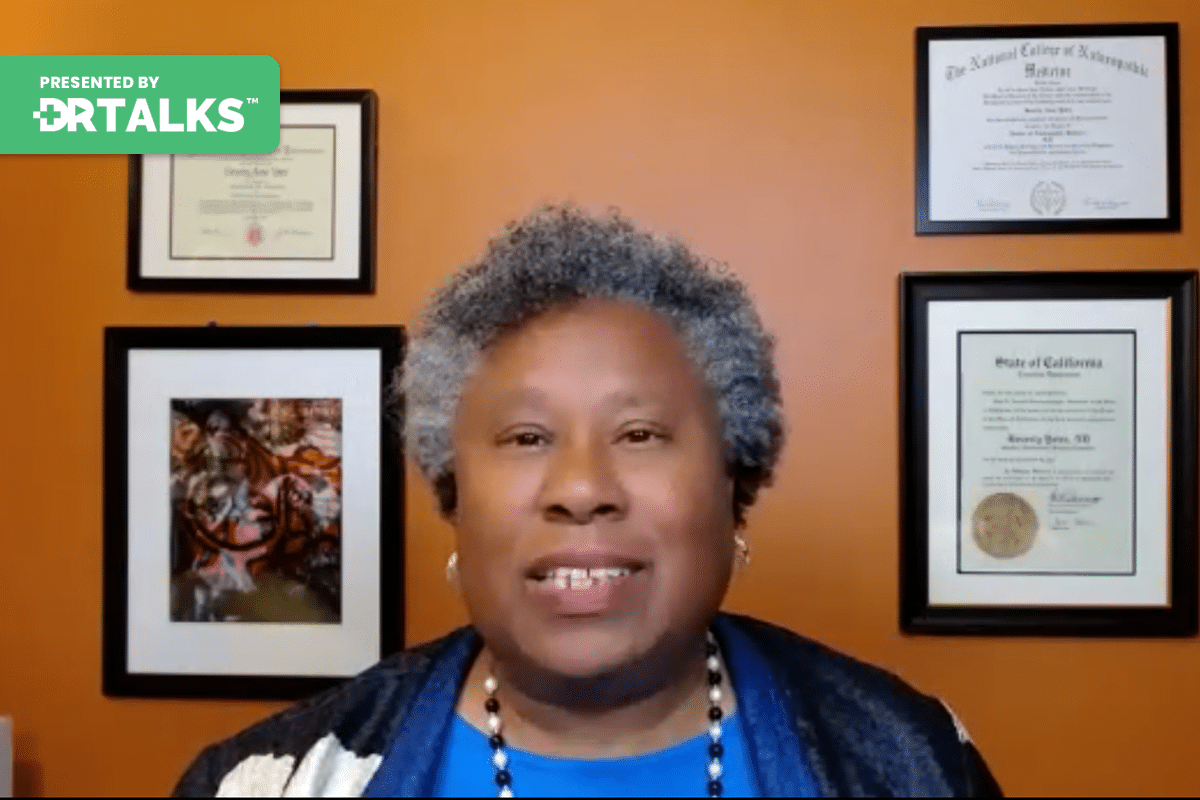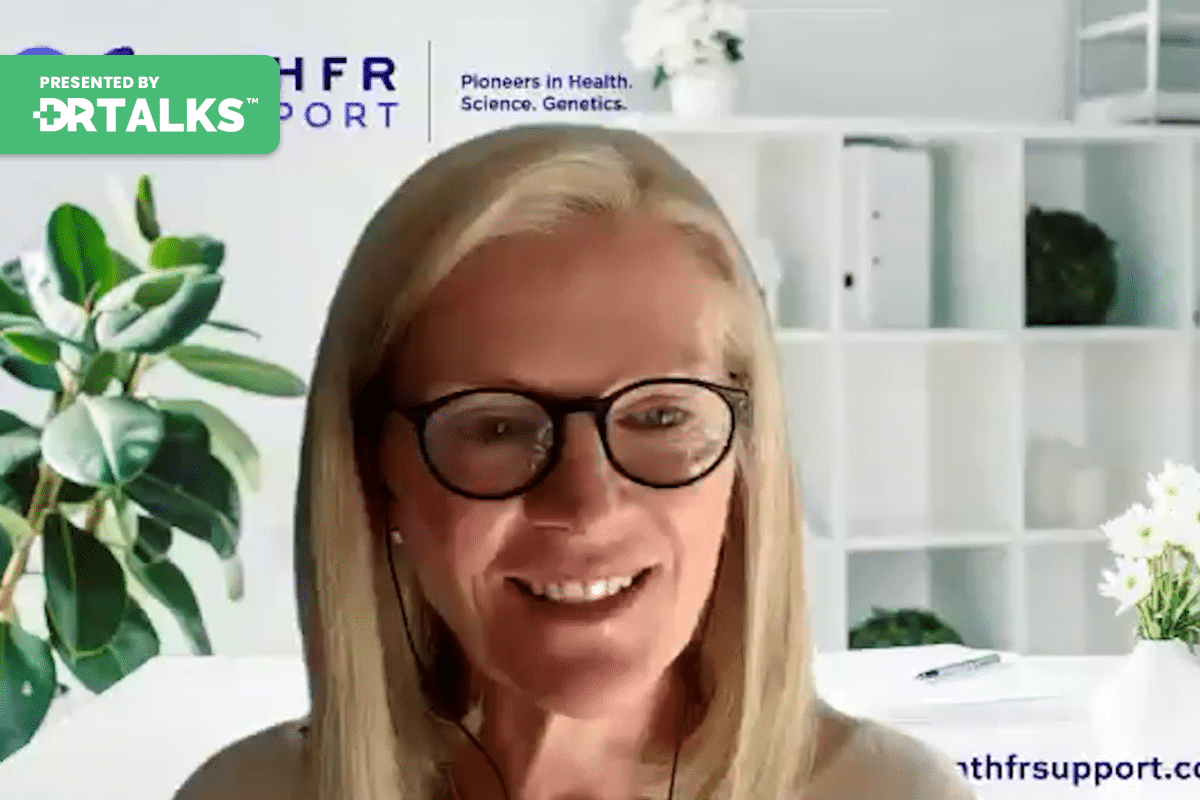Join the discussion below

Beverly Yates, ND is a licensed Doctor of Naturopathic Medicine, who used her background in MIT Electrical Engineering and work as a Systems Engineer to create the Yates Protocol, an effective program for people who have diabetes to live the life they love. Dr. Yates is on a mission to... Read More
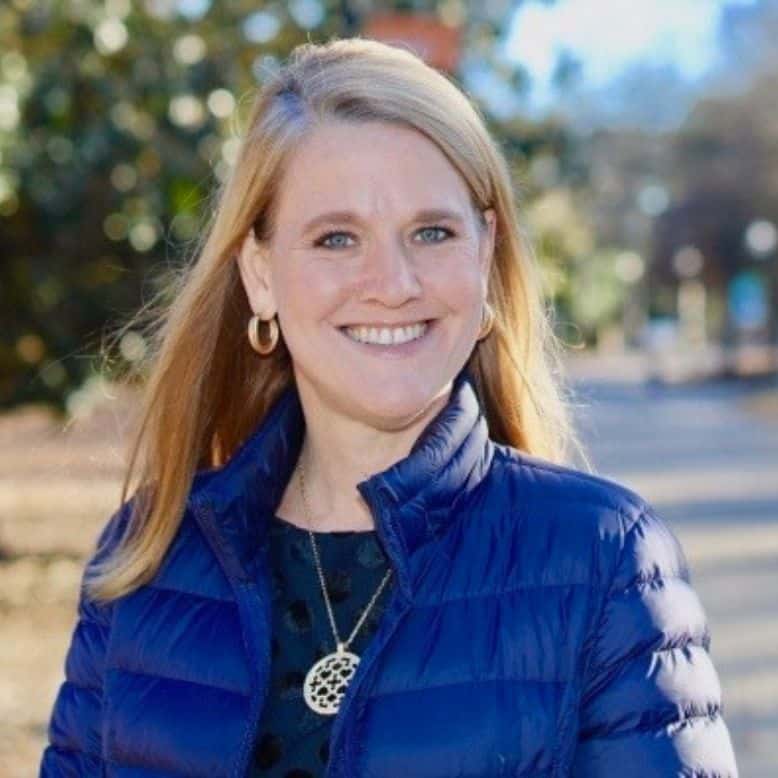
Gin Stephens is the author of the NY Times and USA Today bestseller Fast. Feast. Repeat., and Delay, Don’t Deny: Living an Intermittent Fasting Lifestyle, an Amazon #1 best seller in the weight loss category, as well as Clean(ish): Eat (Mostly) Clean, Live (Mainly) Clean, and Unlock Your Body's Natural... Read More
- Learn how intermittent fasting benefits diabetes and prediabetes, improving insulin sensitivity and health
- Understand the concept of a clean fast and its importance during intermittent fasting for optimal results
- Gather practical steps to start and maintain an intermittent fasting lifestyle, avoiding common mistakes in the process
- This video is part of the Reversing Type 2 Diabetes Summit
Related Topics
Aging, Autoimmune Disease, Body, Brain Health, Cellular Repair, Chronic Illness, Detox, Diabetes, Energy, Fasting, Gut Health, Healing, Health, Hormone Health, Inflammation, Intermittent Fasting, Longevity, Mental Health, Metabolism, Mindset, Mitochondria, Muscle Health, Nutrition, Weight LossBeverly Yates, ND
Hi, everyone. Welcome to the Reversing Type 2 Diabetes Summit. I’m your host, Beverly Yates, ND. Today it is my delight and honor on this particular session to interview my dear friend and colleague, Dr. Gin Stephens. She has a wonderful background, a robust history, both as a teacher and as a leader of an intermittent fasting community and very much a person who engages people to understand what the benefits could be and make sure that they have the support and understanding. It’s not just intellectual, it’s also a lived experience. Gin also does this in her own life, and I know enough about her to realize that she would just be able to share a lot of pearls and insights with us. I cannot wait to get this going with this interview. Dr. Stephens, if you would, please introduce yourself to our audience and then let’s get into our questions.
Gin Stephens
Absolutely. First, I want to make sure everybody understands that I have a Doctor of Education in Gifted and Talented Education. I was a teacher for 28 years. I taught elementary, gifted kids at the end of my career and loved it. You might think, well, what in the world is an elementary teacher doing talking about intermittent fasting? Why? Well, I lost 80 pounds with intermittent fasting from 2014 to 2015, and prior to that I had struggled with my weight for, I mean, literally decades since I started my first diet. It was always on and off, on and off. I made my way up to 210 pounds. I was obese and so I had enough. I started intermittent fasting in 2014, lost all the way that I wanted to lose. I have kept it off ever since, even as I’ve gone through menopause. That is something that I think is really worth celebrating. I’ve been through nine holiday seasons now as an intermittent faster and sometimes people are puzzled. They’re like, “You still do that?” I’m like, “Yeah, it’s a lifestyle.” My mission in life after I retired from teaching in 2018 and even before I retired, my mission in life became spreading the word of intermittent fasting because I like to call it the health plan with the side effect of weight loss it’s more than just a way to lose weight.
Everyone who’s listening probably has a friend who has lost weight with intermittent fasting or who has tried intermittent fasting. Probably a lot of people who are listening have tried it themselves and they may feel like, “Oh, that didn’t work for me.” We can talk about why someone might have tried it and found it didn’t work. What were the common reasons why it didn’t work? Because I certainly am familiar with a lot of people who have said that, and they usually have similar stories. But the most important thing I want people to do is have an open mind, because I didn’t name it intermittent fasting. That verbiage has been out there. The word fasting is so scary because it salio makes people think of Jesus fasting for 40 days and 40 nights. They think, that sounds awful, I can’t do that. Intermittent fasting is so much of an easier way to live than anything I did prior to beginning. I also want to say I love that you are calling your summit. You’re Reversing Type 2 Diabetes because there is a mindset out there. I know you’re familiar with it, but Type 2 diabetes is progressive. It just gets worse and worse and then there’s no hope. Once you have it, you’re going to suffer with it for the rest of your life. There’s nothing you can do except maybe upping your insulin. But absolutely, I know that it is reversible. You can go into remission from Type 2 diabetes, and that is just thrilling.
Beverly Yates, ND
It is thrilling. It absolutely is thrilling. That’s the big the thing that distinguishes Type 2 diabetes, prediabetes from Type 1, Type 1 autoimmune onset pancreas no longer makes insulin. Therefore, the person needs to take insulin as a medication for the rest of their life. That’s a real thing. Right now we don’t have any answers to change that situation. But for PD and for Type 2, absolutely. It’s a mindset people really have to embrace. What are the triggers and causes that got them here and now? What do they need to address? It’s not a one size fits all solution. I think that’s one of the joys of intermittent fasting, that it’s a gift people can use to uncover what’s really going on for them and to take charge, to take control rather than feel like they’re at the mercy of their body. What do you think?
Gin Stephens
Oh, absolutely. There’s more and more research going on with intermittent fasting and Type 2 diabetes. Jason Fung, I’m sure probably everyone listening has heard of the diabetes code written by Dr. Jason Fung. But you he started off as a kidney specialist, a nephrologist, and pretty much everyone who came to him with kidney disease also had Type 2 diabetes. That was just the progression. My dad is the same way you get Type 2 diabetes. Eventually you’re the kidney doctor. He started using fasting with his patients and found that they were able to go off of their insulin. They didn’t need it anymore. A more recent study came out at the end of 2022 and it was published by the Endocrine Society in the Journal of Clinical Endocrinology and Metabolism, and they did a three month intermittent fasting and intervention and just a three month I mean, three months is like nothing. No time at all. They found that 90% of the participants in three months they needed less medication and three months, 55% of the participants experienced what they called remission and they were able to maintain it for at least a year.
Beverly Yates, ND
Wow. That’s profound for results. What a difference in the quality of life that goes with it. I’m going to guess that people’s moods were better, their relationships were better. They probably had better sleep, perhaps less stress. Maybe they got to a place where they had enough energy to actually exercise consistently and they felt, well, maybe fewer joint pains and a lot of positive things there. What are some more things that intermittent fasting can benefit for people who have Type 2 diabetes or pre-diabetes?
Gin Stephens
Well, the key is that you talked about this before. You talked about how Type 1 and Type 2 are different. We know that as Type 2 progresses, people often end up on insulin. People in their minds think they’re just the same exact thing, but they’re not. Type 2 diabetes actually begins with too much insulin. Hyperinsulinemia you got too much insulin, your Type 1 diabetes, you don’t have enough insulin for Type 2. You go through the stages of becoming insulin resistant over time and it has to do with your pancreas has the need for more and more and more insulin based on your eating habits. If you’re following the traditional dietary advice, eat six small meals a day. Always have something going into your mouth. It’s okay if it’s a diet soda that’s zero calories. All of that constant eating, even the diet soda, causes your body to pump out more and more insulin. Over time I used the example from my teaching career. It’s like insulin resistance is like yelling resistance. Think about it like this. When I was a classroom teacher, I rarely raised my voice because it was a lot more effective to get really quiet and close to the children. Then they were like, “Oh my God, what’s happening?” Anyway? But the teacher down the hall who yelled all the time. The teacher down the hall who yelled all the time. But kids at the beginning of the year, they’re like, “Oh my gosh.”
By the end of the year, they had tuned it out. They were yelling resistant. There was so much yelling, it didn’t even faze them anymore. That’s what happens in your body. You keep pumping out more and more and more insulin. It’s like your body is no longer able to listen to it. You need more. Type 2 diabetes as it progresses or as as you go through pre-diabetes, you become more and more insulin resistant. The leading indicator is actually your fasting insulin level. I encourage anyone who’s starting with intermittent fasting to get their fasting insulin level done. A lot of doctors are telling people, “That’s not even going to be helpful.” I’m like, Well, first you might need a new doctor, but it’s all right. It is helpful because you can have perfectly beautiful blood sugar levels and sky high insulin and that shows you that you are on the road to insulin resistance. How do you bring down your insulin once if you figure out that’s true? Well, intermittent fasting is just the best way to do it, because when you’re not taking in anything that requires them. Then when you’re fasting, your insulin levels come down and the most important thing is that you’re fasting clean. That’s a phrase that I came up with in my intermittent fasting communities. It was after I read a lot of things about intermittent fasting and what goes on in the body. I had read the obesity code, Dr. Jason Fung, but he talked about the relationship with high levels of insulin and not being able to tap into your fat stores because that’s another thing that happens when you have chronic high levels of insulin. Insulin as a storage hormone, you’re not able to tap into your fat stores for fuel. The higher your insulin the harder it is to get into your fat stores. When I read the obesity code, I finally understood we got to get our insulin down. But he taught us in the obesity code that this a phallic phase insulin response happens even if you’re having zero calorie artificial sweeteners. He actually has a quote in the obesity code. He said that stevia caused a greater phallic phase insulin response than table sugar.
Beverly Yates, ND
Yes, I think that the research that I’ve seen over the years around these either artificial sweeteners or natural sweet inducing sensations on the tongue, things like stevia, monk fruit, etc. are our problem. Unless people understand this, they think they’re doing better. But if you look at what people how many people you see with diet, something or another or stevia, whatever, and you see their actual health results, you realize this can’t escape. This can’t really be as good as they think.
Gin Stephens
Well, yeah, that’s a valid phase. Insulin response confuses a lot of people because we can’t measure it like at home or on a meter, or we can only measure our blood glucose. A lot of people are like, Well, I drink my Diet Coke, my blood sugar didn’t go up. I’m like, But that’s not what we’re worried about. We don’t want insulin to go up. You want your insulin to be low during the fast. That’s one of the most important things. They actually did a study with rats where they just painted the oral cavity of the rat with different sweeteners, just the sweet flavor, zero calorie, and it’s about insulin response occurred. The rats pumped out some insulin. Well, then they cut the nerve from the tongue through the brain so the brain could no longer perceive. I mean, that sounds really sad for the mice, but they could no longer perceive the sweet taste, no insulin response. It has to do with the sweetness. We want to avoid anything during the fast that makes our brain think some form of glucose or food is coming in. That would even include things like fruit in your water. Don’t put lemon in there or stay away from anything that your brain is going to think it’s food like cinnamon in your coffee. You don’t want that either. If it’s a food like flavor, we avoid it. We also want to tap into our fat stores during the Clean Fast. Of course, I talked about keeping insulin low is one of the best ways to do it. But you also want to avoid taking in any form of energy like butter or MCT oil or coconut oil in your coffee, because you’re not going to tap into your stored fat if you’re taking in a lot of energy.
Beverly Yates, ND
Are you saying coffee plus oil is actually a food like substitute and response and therefore..
Gin Stephens
Well, I’m not. I’m talking this is a separate issue with the clean base. We have three goals. Number one, keep insulin down. That’s by avoiding anything that tastes like food or sweet. The second thing is tapping into stored fat. If you’re taking in fat, your body has no reason to tap into the stored fat. Now, will there be an insulin response? There’s clearly going to be less of an insulin response to fat. It all depends. Like if you’re drinking a flavorful coconut oil, there may be you’ve got the fat and also you may have a slight insulin response. It’s really hard to know for sure. Then our third fasting goal is that we want to have increased autophagy. Well, what is autophagy? Autophagy is our body cellular housekeeping. We all got real excited. The intermittent fasting world in 2016. That was the year that the Nobel Prize for Medicine was awarded based on autophagy research. We all had never heard of that word before unless that you were a scientist and now everyone was talking about it because fasting increases autophagy. Autophagy is when your cells have nothing coming in and they’re like, well, there’s nothing coming in. Let’s just look around and see what’s here. They clean up all the junk, the cell, the pathogens, whatever junk screened old, junky proteins, they might break down old skin that’s no longer needed.
All of that happens with autophagy, and we definitely want to promote it. Well, what stops autophagy? Protein and eating. That’s why we don’t want to drink bone broth during the fast because that will halt autophagy. I mean, it’s food, that’s food for the body. I also like to think of it as when people are confused about what to have during the Clean Fast. If you were going to have fasted blood work, you would not be able to have anything you could have black coffee, maybe some plain tea and water. I’m drinking my sparkling seltzer right now. No flavors added. This would be fine. In fact, I haven’t had anything yet today that would be a problem for fasted blood work because I’m still fasting. You wouldn’t go in for fasted blood work and say, Well, I just put a little nut milk in my coffee. This morning. They’d be like, That is not fasting. Or if you had surgery, you wouldn’t put a little bit of milk in there or a little cream because you saw a video that said it was okay. Any kind of dairy is not going to be fasting because it is nature’s perfect food for growing a mammal baby.
Beverly Yates, ND
It’s exactly.
Gin Stephens
Food is never fasting, though.
Beverly Yates, ND
Thank you for making that point. Clearly, people, you’re listening. Listen again, if you didn’t get all those points, I hope you’re taking notes because this is facts. This is accurate, it’s evidence based. It’s working in actual people. There’s tons of science around it. Dr. Gin Stephens is bringing us facts and useful information. We’re dispelling myths. We’re myth busting left and right here. Please continue. This is the claim fast. Have you share with us everything you wanted to share about why it matters?
Gin Stephens
Well, it just matters because first of all, people have a I have a thought. They’re like, well, fasting is hard. If I want to have a little milk, it’ll make it easier. You’re actually making it harder for yourself. The clean fact is life changing. How I mentioned that a lot of people tried it and it didn’t work for them? Well, the number one thing when I run across somebody and they’re like, “I tried, it didn’t work.” I’m like, “Tell me what you were drinking.” They all tell me a story of they’d seen a video that said it was okay. They were having diet sodas, they were having Gatorade Zero. They were putting lemon in their water. Always something, a little splash of milk. They heard it didn’t matter. People who tried intermittent fasting and it was really, really hard were probably not fasting clean. I have now through my Facebook communities, which I no longer run, am my now private community. I’ve coached literally hundreds of thousands of people through the intermittent fasting journey. The Clean Fast is just foundational. The people when I write Fast Feast Repeat, which is my New York Times bestseller that came out in 2020, when I wrote that, I said, I really need people to understand the power of the Clean Fast. After I explain the why of the Clean Fast and the how of the Clean Fast, I have a section where I had people tell their own story of the Clean Fast and is I don’t even know how many stories there are, but it’s one after another. It’s people saying things like I didn’t think gum was a problem. Then I was having a hard time and I wasn’t losing weight.
Then I read what Gin said and I took the gum out and everything changed. It’s like that little about everything from the milk to the Diet Coke and basically how people found the Clean Fast to be transformational for them. It wasn’t hard to get those stories. I just put out one little Google form and said, Click on this if you want to tell your story. Then I had hundreds to choose from because that’s how powerful the Clean Fast is. Anybody who struggled with fasting, I don’t care who told you it was, okay, try it without whatever that is you think you have to have whatever you think works for you. It’s not helping you. You may think that it is, but it’s not. Take the Clean Fast challenge. Give it 30 days. Black coffee, Not flavored, just black. We had somebody in our community the other week and somehow she missed that section of our speech. To repeat this, I don’t have flavored coffee. She’s like, I’m having such a hard time. Why is fasting not easy for me? I’m struggling every day. We kept talking to her and finally we realized she was drinking flavored coffee. It was black coffee, but it was flavored black coffee. She switched it immediately. She noticed the difference. Take the Clean Fast challenge. Like I said, black coffee, no flavor, plain tea. When I say tea, real tea. Those herbal teas are not real tea. These be real tea. The bitter flavor profile of black coffee and plain tea do not cause an insulin response. That’s why that’s all right. Plain water. Nothing added for flavor, plain sparkling water, no flavor. That’s it. It’s as simple as that. It’s super easy. You can go anywhere and get black coffee while you’re traveling. You can get water. You don’t have to pack a lunch.
Beverly Yates, ND
It does keep things simple, that’s for sure. I think that a lot of times if people aren’t used to reading labels and paying attention to the details, are their flavors added? Is it artificial or natural Organic? It’s irrelevant if it’s an added flavor your brain is expecting, it sounds like more calories behind it. That’s probably why that experiment on the poor mice where they severed the nerves, though the tongue wouldn’t tell the brain about the flavor. Then it changed that. The phallic response with emptying in the stomach and the insulin and all the dance that goes on, and then the body goes, Oh, we’re just drinking something and it’s fine, and none of that gets released. Therefore you can now start to release the weight, tap into the fat stores.
Gin Stephens
Absolutely. You made a really good point about reading labels, because sometimes things that are sold as black coffee, like there’s one brand of coffee particularly that people will follow and it’s like a cold brew and they get so excited about this cold brew and they’re like, “I have finally found a cold brew that I love, and I can drink it plain. It has no sweeteners.” They’re like, and the brand name is. Then they’ll say it and I’m like, Bad news, turn it over. Read the label. One of the ingredients is natural flavors, and I don’t know what they put in that black coffee or whatever, but it is so delicious that clearly the natural flavors are not okay. You want to avoid natural flavors. You’re drinking a bottled coffee or tea product. The only two ingredients should be coffee and water or tea and water. In tea they’ll put in citric acid, which sounds like no big deal, but that gives it like a tangy flavor. Like almost like a lemony kind of a flavor. It’s not like distinctively lemon, but it’s tangy. You want to avoid citric acid.
Beverly Yates, ND
Those are great distinctions. Thank you for that. Now, this brings the question to mind that I know somebody on this segment will be listening and wondering, so let’s answer it. Does it matter if it’s regular black coffee or if it’s decaffeinated coffee like, say, Swiss water processes that are you counting on the caffeine for some sort of a bomb for appetite suppression or is that not the thing you just want the bitter profile?
Gin Stephens
Yes, you don’t you don’t even need to drink coffee. If somebody doesn’t like coffee, you do not need it. One good thing about coffee and tea is that they increase autophagy. That’s helpful to know. You can, if you like coffee you can know that, “Hey my black coffee is helping my body have even more increased autophagy.” Exercise increases autophagy as well. But decaf regular, it’s the polyphenols that they think are boosting autophagy. It doesn’t matter if you don’t need the caffeine. But I like the caffeine also because I have an ADHD brain and caffeine helps us to calm down. It helps us to focus.
Beverly Yates, ND
All right, great. Thanks for those distinctions. I appreciate that. Cool. Then how does someone get started with living an intermittent fasting lifestyle? Because I know in your messaging you always talk about it as a lifestyle. Please share with us that point of view.
Gin Stephens
Well, that’s really, really important to think of it. It’s not something that you start and stop and start and stop. In fact, I’ve got a new book coming out. It won’t be out until December of this year, 2023, but it’s the 28 day fast start day by day. The Ultimate Guide to starting or restarting your intermittent fasting lifestyle. It sticks in all those words. I chose very carefully because a lot of people are fasting, dabblers. They will start, they’ll do a little bit, then they’ll stop and they don’t do it and they do it a little bit. The thing that I want everyone to understand is you have to become metabolically flexible in order for intermittent fasting to feel like just something you get up and do. Your body has to flip that metabolic switch so that when you wake up in the morning you might still be running low on stored glycogen that your liver is dumping out from what you ate yesterday. But at some point in the day, maybe around mid-morning, maybe noon, it all depends on you how active you’ve been, what you ate yesterday. Your body doesn’t have enough stored glycogen anymore. It has to flip that metabolic switch. You go into ketosis, you’re running on stored fat, you’ve got great mental clarity, you’ve got great energy. I haven’t eaten today. It’s 1:30. I’ve been moving boxes all day because we’re moving, I’m packing, the movers are coming tomorrow. I am running literally on stored glycogen right now and well stored glycogen and ketones. I think I’m past the stored glycogen phase, although there’s still some in my muscles, but I’m running on the ketones. But I flipped that metabolic switch, which is the key.
My body is metabolically flexible but when someone starts intermittent fasting on day one, they are not metabolically flexible yet and it’s going to take you a while. You’ve got more glycogen to deplete probably than I do because you’re starting with a full tank on day one and then over time you’ll go through the adjustment period. You’ll have a few days where you feel really terrible because your body hadn’t flipped the switch yet. But once that happens, you’ll feel so much better. The starters in the stoppers get trapped in the adjustment period and they never make it to metabolic flexibility. The key is understanding that that’s what the 28 day fast start is all about. Then my book that’s out already that came out in 2020 Fast Feast Repeat. There’s a section called the 28 day fast start that it’s got three different plans you can choose from. You can take a quiz whether you’re a rip Band-aid off kind of person, start a little more aggressively, or whether you’re someone who needs to take it a little slower. No matter which plan that you choose, out of the three options, there’s one in the middle. It tells you week by week, this is how much you should start fasting. This is what your eating window will be like. It ramps up gradually. Even the rip off the Band-aid people are not starting with a 19 hour fast or anything like that. You’re just easing in, letting your body can change from plan to plan as you need to. If you’re like, “Ooh, I thought I was going to rip off the Band-Aid. I need to ease back a little bit.”
You can do that because you’re in charge at all times. Understanding that once your body flips that metabolic switch, it’s going to be easier until it happens. It won’t be, but you really need to be patient with your body as it adjusts during that adjustment period. The 28 day fast start is just an average. Some bodies adjusting or some bodies take a little longer. Someone who has decades of obesity and Type 2 diabetes, it’s going to take you longer to reverse that because you’ve got to bring your insulin down more. You may have some time that’s a little harder. It might take your body six weeks or eight weeks to fully adjust so that you start to feel better, but understand and know from thousands and thousands and thousands, probably millions at this point of people who have come before you, that it is doable and your body can do this and it does get easier and it gets better. That’s the part that’s so amazing. Be patient with your body and let it happen. Also another thing how I mentioned how people said fasting didn’t work for them. First of all, we talk about the Clean Fast. But then I also say, how long did you give it? A lot of people will say, Well, I didn’t lose any weight. How long did you use to ascertain that they’re like, Well, I did it for three weeks and I was up two pounds since I quit. One feature of the 28 day fast start that I am adamant about is I don’t want you to weigh you weigh on day zero before you start. Then you put your scale away and you do not weigh again until day 29 because the 28 day fast start is not about weight loss. It is the time that your body is adapting. Some people do gain weight during the fast start and then after their bodies are adapted, they start to lose at the rate of about a pound a week. This is not going to be on the tabloid cover of like lose 30 pounds by next weekend. That’s not what intermittent fasting is. It’s slow and steady and it doesn’t happen immediately because your body has a lot of adjusting to do. It has to build up fat burning enzymes. I mean, so many things have to happen behind the scenes for you to really be able to access your stored fat. But understand, it can happen for you and the weight loss can happen down the road. That was a long answer. Did I enjoy every bit of it?
Beverly Yates, ND
Yes. You sure it did. One of the things I’m thinking is that and I know you see this too. When people have a chronic long term problem for a lot of different reasons that we’re expecting or we’ve been taught culturally to have a really quick solution.Something’s wrong. People expect them to fix it in a day or two, maybe a week, tops. That’s not the case. I’m glad that you’re really getting involved that people have to be patient and keep at it.
Gin Stephens
I like to think about it like if you’re walking in the forest, let’s say you’re walking through a meadow and you see a forest and you start walking into the forest. When you start walking into the forest, you’re going into the forest, and now you’re ready to go back to the meadow. Well, you don’t just turn around and instantly you’re in the meadow. You have to walk back out of the forest. Think of our health conditions as being deeper and deeper into the forest. You’re going to have to walk back out of the forest to get to the meadow. The longer you walk in the fall, the forest, the longer it might take you to walk out. Just you’ve got to be patient with your body. Your bodies can heal. They are amazing. Even when I was 210 pounds, my body was taking care of me. I was putting in food all the time. I was eating the standard American diet. My body was probably like, “Please stop doing this.” But it still took care of me. It was probably grateful when I finally started giving it a break, but it had a lot of healing to do.
Beverly Yates, ND
It takes time. It takes energy to take enzymes, quite literally, and then there’s a clean up process. This is great. With that in mind, what are some of the most common mistakes that people will make when they begin intermittent fasting? Because I know they’re out there?
Gin Stephens
Well, first of all, like I said, not fasting clean. If you’re not fast and clean I really think if you’re not fast and clean, you’re not fasting, you’re doing a low calorie diet. We know that low calorie diet, slow our metabolic rate because our bodies can’t tap into our fat stores very well. You’ve got let’s say you had a little bit of milk come in and all morning and in a cup of coffee. You’re not at your influence high so you’re not able to tap into your fat stores very well. You’re going to be hungry. It’s going to be miserable. You’re also going to slow its metabolic rate in response. Not fast and clean is the number one mistake. Number two is really not giving it enough time, expecting it to be quick, expecting it to be easy. I think the third mistake people make is they try to do too much too soon. You really do need to listen to your body as you’re adjusting. I end up usually around a 19 five, a five hour daily eating window works really well for me. I don’t want you to start there on day one. You’ve got to work up to it. Another thing, I think of mistake people make is they will follow an expert who says this is exactly what you must do and what you must eat and how you must do it. I am not like those people that tell you exactly what you want, your what you must eat. In fact, some people don’t like my work for that reason. Because they want a meal plan. They want me to tell you what to eat. I’m not going to do that because of bio-individuality.
We are all different. Some of us thrive. I do great with more like whole food plant based. My body loves that the most, but that is not right for all bodies. Some people do better with a lower carb approach and fewer grains, for example. It just all depends on your body. It’s a mixture of your gut health, your genetics, your metabolic health. Many things. Thanks to bio-individuality, any meal plan that I made would not be applicable to everybody because I like for example, I know a lot of people who do great with keto or low carb. I felt awful on it and I never lost any weight, no matter how hard I keto.. You know what I did? It didn’t work for me, but I did a whole food plant based experiment, not for the purpose of weight loss because I’ve been maintaining my weight. I just wanted to see how it would feel and I was getting ready to have a gut test done. I wanted to really boost my gut microbiome. I did it for 60 days this fall, and I never felt better. I was wearing a CGM for part of it. My blood sugar was so steady with that whole food plant based diet. I mean, it was shocking how steady my blood sugar was. That worked really, really well for me. I ate a lot of whole grains and beans and avocado and Ezekiel bread, that sort of stuff works great. It’s all about finding what works for you and avoid someone’s prescriptive. Here’s what you have to do. The only thing I’m going to tell you you have to do is you have to fast clean. That’s it. Fast clean. Listen to your body. You are your own study of one. If you want a meal plan, you’re not going to get it from me because someone could follow me around and eat exactly what I eat when I eat it. They would have completely different results. I like to think, Beverly, it’s really kind of funny. Every diet book out there that tells you exactly what to eat and when to eat it is the diet that worked for that author.
Beverly Yates, ND
I agree.
Gin Stephens
I tried all those all those years that I was yelling and you’d read one in like it was so funny. But like, that’s the diet that worked for them. They’re like, this is the universal diet for everyone. Then I would try it. It didn’t work for me. Now I understand why. You’re creating the universal diet for no one but yourself, your study of one diet?
Beverly Yates, ND
Yes. This bio-individuality thing is real and it’s something that frustrates a lot of people because they really want a one size fits all approach, which dishonors the reality that we are individuals, even twins and triplets, you can’t give them all the same dietary advice or the same stress or sleep regimen and have it work into their gut microbiome..
Gin Stephens
Dr. Tom Spector does a lot of gut research. He ran the British gut project and now he has a company called Zoe where they’re doing personalized nutrition recommendations for people. But he studied twins. That was what his basis was genetics and twins. How are people like how are they different? He found through his twin research that identical twins were less alike in their response to foods than he would have predicted. That was before they knew anything about the gut microbiome. Of course, that sent them down the path. As a research scientist. Now he’s a gut expert. But the difference between what two identical twins have completely different responses to foods lies in their gut. Because as we go, as soon as you’re born, you and your twin, even if you’re in the same house, you’re going to have different experiences with what goes in your mouth and what’s growing in your gut.
Beverly Yates, ND
Badly that microbiome is going to win. With that in mind, let’s talk about another really important aspect of intermittent fasting and people for whom the plan can work, or it didn’t work for me. In the confusion, you busted a lot of myths. Let’s talk about the importance of community and the people around you. That’s one of the observations I’ve made about the thousands of people I work with, with Type 2 diabetes and pre-diabetes is that they often feel very isolated and alone, even if everyone in their family has the problem. It’s just really fascinating when you think about the fact there are hundreds of millions of people around the world with this specific problem. People feel as if they are the only one. What role does community and emotional support play in this journey? With success, with intermittent fasting and with healing and getting to be able to reverse Type 2 diabetes pre-diabetes?
Gin Stephens
Well, it’s funny, I didn’t set out to write books and host podcasts and build communities like I was just a teacher and I did intermittent fasting and it was working for me. Then in 2015, I was on a Facebook group that when I was doing it at the beginning, when I was starting, I joined communities, I joined Facebook groups and that helped me. It supported me through the process, but it was very confusing. There’s a lot of really bad advice and people just saying all sorts of crazy things. As time went on and I became more educated just because I’m a teacher and I like to learn, by this time it was the like August of 2015, I had already lost the weight. At that point. I was in this one Facebook group and the advice people were giving was just really terrible and I had been reading Dr. Jason Fung’s blog, The Obesity Code wasn’t out yet, but I was starting to learn about insulin and learning about that from his blog. I was like, I got to just be in a group that’s just me and my friends. I started my very first Facebook community and I started it with me and my husband, who wasn’t even doing intermittent fasting. But you can’t just start a group with one person. I had to put him in it just temporarily. Then I took him out. But then my friends that were doing intermittent fasting, they came in there too. Then more people came in there and then more people. Then people started wandering in. Then before I knew it, we had 1500 people and then we had 3000 people. Then over time from 2015 until I finally left Facebook in March of 2021, we had almost 500,000 combined members from all over world in my different Facebook communities.
But the key is that having a supportive place where people it’s okay if you’re struggling. We don’t mind hearing about you struggling. It’s not all rosy. We’re not going to tell you every minute. It’s going to be fabulous. You’re going to have struggles along the way and we’re going to be real for you and also giving you advice that is consistent. I’m still saying the same stuff that I said to people because it’s evidence based, it’s research based, and it’s what works. Having a community where people are all on the same path, we have the same philosophies. We all want to be in the Clean Fast. We understand that and we all have the goals of lifting each other up. It’s just a magical place. I took my community off of Facebook. Like I said, it actually just got too big for me to manage instead of me interacting with people, which is what I love. It was just me managing problems all the time. People would come in. I didn’t know how they got there. Then they’re telling people to put lemon in their water and then we’re like, No, don’t put any weights. An argument sounds like we need a place where people can come where we’re not arguing all the time because that was took a lot of work behind the scenes. I was literally 24 seven in that. We started a paid community and anyone who’s interested, if you go to GinStephens.com/community, it’ll link from there. But Gin is G, I, N, like in gin and tonic and Stephens is with the page GinStephens.com/community.
Beverly Yates, ND
Is that the best place to meet you. I was going to put that at the end of our interview but well that now that.
Gin Stephens
ginstephens.com will take you to everything. You reach me. All things are linked from that. But in the community like people are surprised at how much I’m in there. I’m literally when I first wake up in the morning, I brew my coffee, feed my cats, unload the dishwasher, and then if it’s warm enough, I go sit on my porch, drink my black coffee and check in on the community for an hour. I’d say that’s my work of the morning. I’m in there answering every single question that people have and interacting with the members. I absolutely love it. What they say find something you love to do and you’ll never work a day in your life. I’m in that community all the time, but it doesn’t feel like work because I’m an elementary teacher. I heard the same question a hundred times a day. There’s nothing you can ask me that I haven’t heard before. I will answer it as if it’s the first time I’ve ever answered it. I love managing the community. What’s even better, like where we’re moving right now, like I mentioned, and I’ve been very, very busy. The comments have piled up, the questions have piled up. I will get to them this evening and I know that when I get there, the answers will already have been given by some adults in the community because we have a community of people from lifetime members to people who just started today, or people who are just lurking around thinking they’re going to start maybe next week, I don’t know. But in our community, we have all different levels. But someone will have the answer to whatever it is that you need, whatever struggle you’re having.
It’s a good community when people don’t just come in and say, Can I put lemon in their water? We had someone today who came in and said, I’ve been really, really struggling for the past month because my mother died. I haven’t been fasting for a month and I’m really struggling to get back started because the emotions of dealing with the grief and when someone comes in and shares real things that are happening in their lives and then everyone supports that they’re not feeling so alone. She could just be out there on her own. Maybe she doesn’t know anyone who’s fasting. No one is going to understand. But she can come to us 24 seven. We’ve got members all over the world. Even when Gin is asleep, people in Australia are awake and they will. They will talk to you then. Just knowing you’re not alone and whatever you’ve experienced, someone else has experienced it. Maybe you had a snack accident when you window was closed. You can come in and talk about it and everyone will say, I need to. That’s happened to me. You just don’t feel like you’re going it alone.
I also have a podcast. I have more than one podcast. You came on my Life Lessons podcast, by the way. Everyone loved your episode. Thank you so much for coming. We talked about You’re welcome blood glucose, managing that, your expertise. But my big podcast is called Intermittent Fasting Stories, and I’ll be recording episode number eight on a 315 at 4:00 today. We have a lot of episodes out in the world that come out every Tuesday and Thursday. We have over 300 episodes you can listen to and it’s really it’s what it says it is. It’s intermittent fasting stories. It’s me and a guest and they tell you their story. We all have so many things in common. All of us do. Every single story you find commonalities to your life, but you also find things that are different. It’s great to hear how people make it work whether they’re doing alternate daily fasting or whether they’re doing a five hour daily eating window or maybe someone does 16, eight. We talk about it and we share and you will leave each episode feeling inspired, feeling motivated, but also with a new understanding of something that you didn’t have going into it.
Beverly Yates, ND
Totally makes sense. Bringing together community so people are supportive that any myths or misunderstandings are cleared up, myths are dispelled and that people understand, excuse me, the valuable importance of their own role and taking control and responsibility for their health. I think that’s a powerful mix for sure. Thank you for being a caring partner in helping people enjoy more comfort and ease and better health in this lifetime. Because you see the explosion of struggle and the difficulties people to get into and go, boy, oh boy having quality information and a place to go where people understand and can add value is important and not add more confusion or complete nonsense.
Gin Stephens
Thank you. It’s important to be on the same page because there are a lots of people putting content out there about intermittent fasting. It’s going to really confuse you if you try to drink in at all. You’re like, Well, this person said this and you said this. I’m like, Look, we’re following these principles here. Stay off of the YouTube videos, guys. You’re going to be so confused, you won’t know what to do.
Beverly Yates, ND
That is exactly the experience I think that many people have who have Type 2 diabetes, prediabetes, blood sugar related concerns. It’s part of what’s motivating the summit and much of the work that you are doing and that I am doing is just putting together what actually works for real people in today’s world.
Gin Stephens
Exactly. Yes. Well, thank you so much, Beverly.
Beverly Yates, ND
You’re welcome. Gin, you’ve been delightful to interview. I’m glad you’re part of our summit. Friends, you can reached in at G I N S T E P H E N S.com. ginstephens.com. As I said before, it’s the best place to connect. Find out what she’s up to, what she’s offering. I would encourage anyone watching the sessions, please share this with other people that people that you care about, people that are struggling or who care about their health. Your loved ones, friends, family, neighbors, colleagues, whomever, because this is such a global problem and we can all be partners working together to get really quality information out. That’s fact based and that is actually useful in the world we all live in today. Dr. Gin Stephens, thank you for being here on this session. Appreciate you.
Gin Stephens
Thank you.
Downloads

